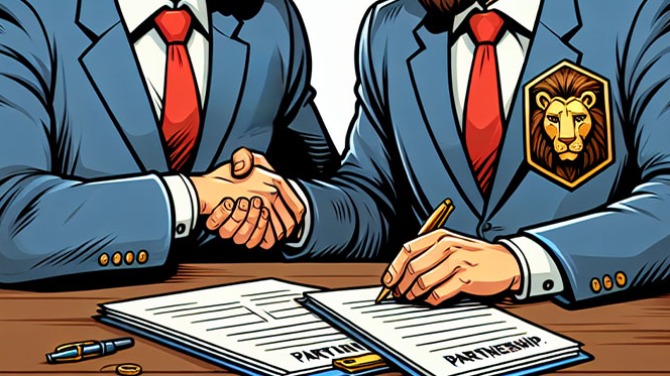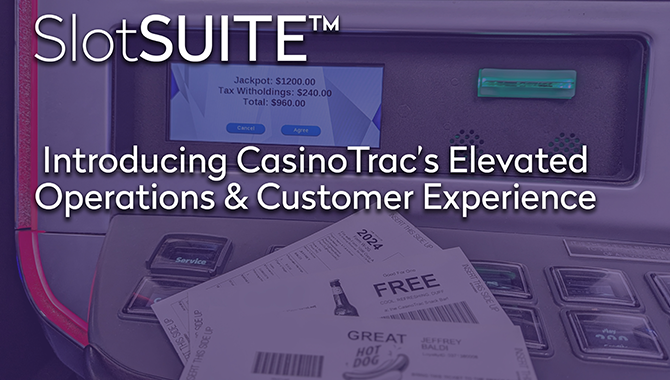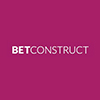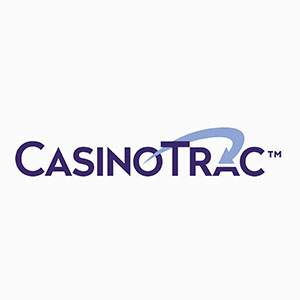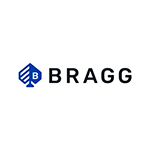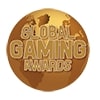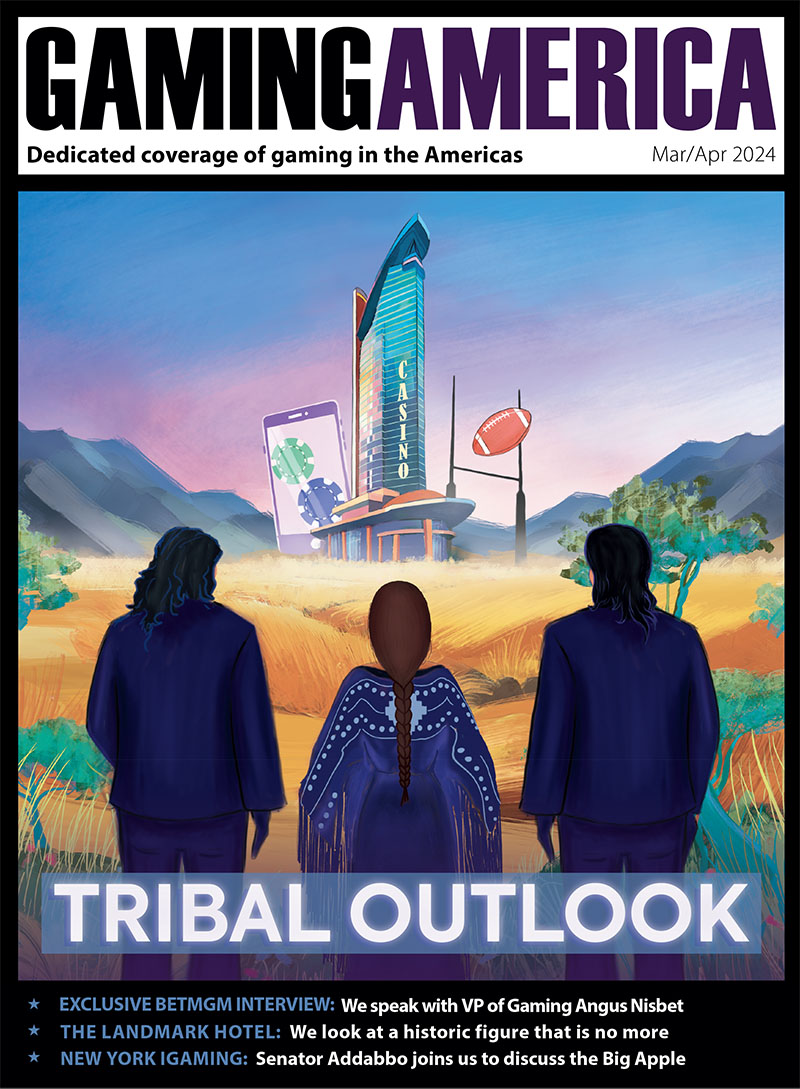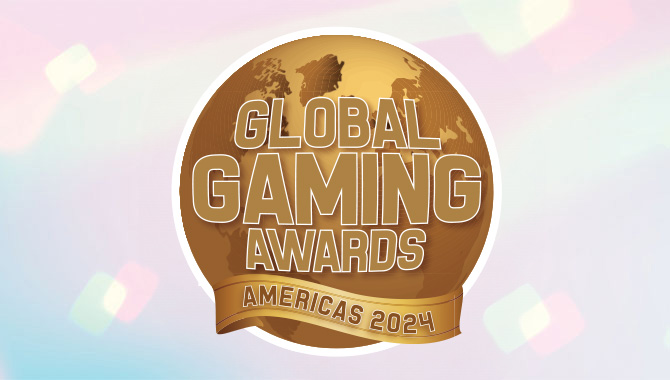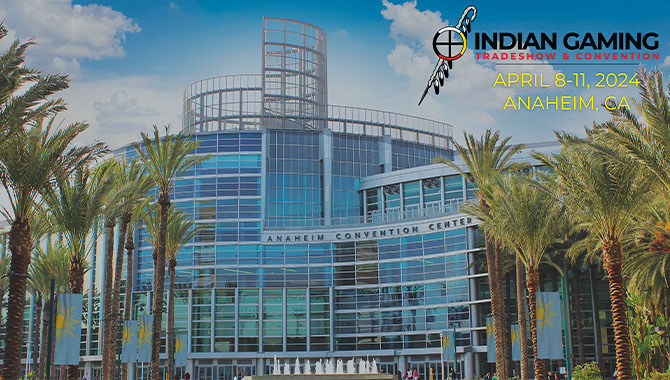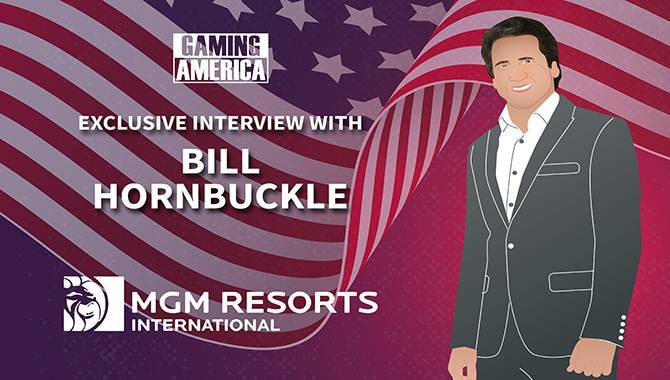
“For me, I’ve reached the pinnacle of my career – I literally started out as a bus boy,” MGM Resorts International president and CEO Bill Hornbuckle tells Gaming America. “I never thought I’d end up a CEO of anything, let alone a company of this scale. My mother would be proud. She wouldn’t have believed it but she would be proud.”
It’s been an eventful few months for Hornbuckle, who succeeded Jim Murren as MGM Resorts CEO in July after a four-month period as acting CEO. Murren took part in last year’s US CEO Special and the COVID-19 pandemic has ensured a baptism by fire for his successor. But in truth, it’s been an eventful 43 years in the Las Vegas community for the exec. Having left a small community college in New England, Hornbuckle came to Nevada when he was just 18. Inspired by the social environment, he took an interest in the hotel industry, and basketball team the Running Rebels, ending up at UNLV.
“I came out here in 1977 and, interestingly, never left,” he reflects. “I’ve been here that entire time. I tried a few times in my career to come off and do different things. Las Vegas back then, there were many characters still lying around – I’ll leave it at that! It was a colorfulspace, a fun space; I was a kid from New England who just loved it. I loved the sun and was happy to get out of the snow.”
During our call, Hornbuckle sits in the Bellagio, where last year’s interview with Murren took place and where this one would have were it not for the impact of the pandemic. When he first started out, however, he was only across the lake from the Bellagio, at the Jockey Club. Starting as a room service bus boy, Hornbuckle worked his way up and ended up at Hilton, before working for Steve Wynn at Wynn Resorts for about 15 years. Learning the ins and outs of the industry, especially through the growth years, Hornbuckle opened the Mirage with Wynn in November 1989.
We're going to make a major bet. The question is when and where but I'm going to diversify the company into Asia more and into digital more. Those are the two bigger bets in the tenure I have.
Hornbuckle recalls: “I took the story from there and ultimately became president of Caesars, and joined MGM Resorts in 1998, the same month Jim Murren joined – our former CEO and chairman. So Jim and I have been on that journey here for about 20 odd years together. I took over the realm here in March of this year as acting CEO and then in July was appointed permanent CEO.”
Hornbuckle laughs when Gaming America points out his status as a gaming industry veteran, also fondly remembering the fun times he had upon first joining MGM Resorts. Owning just a property and a half back then, the operator held high aspirations as it built the Bellagio, and Hornbuckle worked with founder Kirk Kerkorian for three and a half years. Those aspirations, though, equally extended to internet gaming, which actually took Hornbuckle to the Isle of Man as a brief “entrepreneurial gesture.”
“We set up BetMGM, PlayMGM at the time, and I was in that venture for about a year,” he explains. “We decided the timing was not ripe and ready, particularly from a regulatory perspective, so we put that to sleep. It was at a time when Tony Blair and Gordon Brown had aspirations for up to 40 regional casinos – so think large-scale integrated resorts. MGM Resorts had bought land in seven or eight different places – Sheffield, Liverpool – or had optionality. We pursued that for about three years and over time it got beaten down to a couple licenses. And when Gordon Brown took over it became no licenses, so we exited.”
Hornbuckle’s return to Las Vegas coincided with MGM Resorts’ purchase of Mandalay Resort Group. He points out he never left, technically, though when he did return full-time he became president of Mandalay Bay – a “large convention play” for the operator. It was a role that occupied Hornbuckle until the recession of 2008, which inevitably brought on change for the company, and would provide similar challenges to those Hornbuckle has faced during his first few months as CEO.
Pre-2008, the economy was performing so well and MGM Resorts was making “frankly so much money” in the collective. However, executives ran so-called autonomous places, reporting to corporate for capital and larger-scheme ideas without the company actually running as a single unit. Databases were not merged and, being on the brink of both opening up CityCenter and bankruptcy, the company was pushed to a different place.
“We put together a true corporate unit; I became the company’s CMO at that time,” he explains. “We all got into a room and said who wants to do what – and who can do what? I was the most likely marketing-inclined guy of the group, so I ended up CMO. My current colleague and CFO Corey Sanders became COO and Jim was the CEO at the time. I did that for four to five years. In 2012, I became president of the company and, about a year ago, I became COO and Corey Sanders moved back over to CFO of the parent.”
Now as CEO, Hornbuckle emphasizes his focus on Macau, which has always been one of his remits; he is also chairman of the board of directors of MGM China Holdings. In the Asian gambling hub, MGM Resorts recently opened up its second property, on top of the four, soon to be eight, non-gaming hotels it owns in mainland China. In the CEO’s words, the growth story has been “pretty incredible,”taking the operator from one and a half properties to almost 30 (counting its Chinese hotels).
Hornbuckle’s transition from COO to CEO was a “bit shocking and a bit overnight,” but not because of any change of duties or altered expectations. It was, of course, due to the COVID-19 pandemic. “At that point we were just trying to deal with COVID and trying to understand its scale,” he says. “Our business had fallen dramatically; we’d gone from the low 90%s into the 20%s in 10 days. Even within a week’s time frame, we made a decision to close properties, hopefully leading the environment and community to a safer place. It was interesting, first as interim and then as permanent CEO. We were closed for two and a half months and then began to open slowly one property at a time, so we’ve migrated our way through that transition.”
Considering Hornbuckle’s vast experience in the sector, he is well-positioned to answer whether or not the COVID-19 pandemic is the biggest challenge the industry has faced. While there have been some traumatic moments over the years, such as the recession of 2008, Hornbuckle acknowledges this to be the most impactful crisis the industry has had to endure – both in terms of global reach and duration.
It was interesting, first as interim and then as permanent CEO. We were closed for two and a half months and then began to open slowly one property at a time, so we’ve migrated our way through that transition.
Taking the pandemic “extremely seriously from day one,” MGM Resorts quickly closed its properties, although Hornbuckle admits the operator was yet to understand the “longevity of what was about to happen.” The company laid off a staggering 62,000 employees, half of which have since returned to work thanks to property reopenings. MGM Resorts additionally put in place a seven-point safety plan, with the aid of medical and professional external advice, including the help of Harvard University experts. Health and safety measures will subsequently cost up to $94m for 2020.
“When you go up to a normal blackjack table now, instead of seven places there’s three, you’re surrounded by plexi, the dealer has a mask, you must wear a mask,” Hornbuckle explains. “There’s no smoking, no one can stand behind you, and there must be six feet of social distancing. So the vast majority of our casino environments we have anywhere from 25 to 50% capacity. They’re safer, spread out and don’t quite enjoy the energy they did six months ago. But it’s a fun environment.”
The experience has taught MGM Resorts numerous lessons, including the value of mobile check-in, a project already underway but accelerated due to the pandemic. At the company’s properties, you can now use your mobile as a room key, check out on your mobile, order room service via mobile and much more. It’s a vital tool for MGM Resorts’ regional hotels where Hornbuckle says drive traffic is actually up year-on-year in most instances.
Where the operator is going to struggle is large gatherings. At the time of our interview, gatherings are restricted to 50 people, curtailing entertainment and meetings – two key components to conventions. For Hornbuckle, this makes conventions non-existent. The regional market, where drive is 95% of the traffic, is less affected, leaving MGM Resorts in great shape in that area of the market. In Las Vegas, though, it’s very different, with fly traffic of scale a big deal for the operator.
Here, Hornbuckle admits the organization is equally as reliant on Nevada Governor Steve Sisolak as it is its own forward planning. The company is in talks with the Governor about protocol for how to meet safely at scale. As Hornbuckle quips, that doesn’t mean “10,000 people” meeting straight away. But the gaming and hotel industry is hopeful the upper boundary can sit somewhere north of 50 in the near future. “One thing we have here in Las Vegas is space,” he says. “So we’ve been presenting to the Governor a series of protocols and he’s been taking them into consideration. Hopefully we can get some flexibility to get to the next step.”
Another area MGM Resorts is taking seriously is its social impact initiatives – unquestionably even more important during a global pandemic. Hornbuckle quotes figures that show unemployment at 30% in April, with the industry directly employing around 250,000 people, so the company’s responsibilities are not lost on the CEO. “We’ve done many things,” he says. “Everything from an employee relief fund internal to our own staff, Mr Kerkorian’s foundation giving us $4m and the company putting in an additional $6m through employees and other partners. We had massive amounts of food quantity and quality being prepped ready to go out, quickly mobilizing and getting that food out to the community. Our employees each year have committed 100,000 hours of voluntary labor, and they’ve all pitched in, something we take with great pride. The community’s been hit both by COVID in one context and unemployment in the next.”
It’s been a challenging time for the land-based gaming sector but the operator remains aspirational with its goals. Where it has even higher hopes of growth, however, is its digital gaming arm, through BetMGM. Last year, we spoke to Murren about the company’s joint venture with GVC Holdings, with the then chairman and CEO clearly demonstrating his passion for sports betting. A key difference one year on, though, is the involvement of online specialist IAC, which recently invested approximately $1bn in MGM Resorts.
“It started with a conversation about sports betting, because obviously it’s caught everyone’s attention,” Hornbuckle explains. “They decided to buy into the parent, because frankly BetMGM for today is 50% owned by GVC and 50% owned by MGM Resorts. It’s not a public vehicle, although it probably will be down the road. But they made a decisive bet; they liked our story and the upside of the stock. Barry Diller of note, as I do, believes this industry will rebound fully and that fundamentally nothing has changed. In the middle of a pandemic, people still come in droves to do what we offer and frankly, we’re at half scale. This gives us confidence in our industry both short and long term.”
With MGM Resorts’ stock “cut in half,” IAC chairman Diller saw the move as an “investment and sports betting/online gaming play.” Having met Diller 20 years ago, Hornbuckle is understandably delighted by his and IAC’s involvement with MGM Resorts. “We’re not a digital company at our core so their ability to help us get to a different spot quicker is meaningful,” he adds. “It’s a big bet on us and frankly a bet on me. He knew the CEO transition was happening and said let’s do something.”
For me, I've reached the pinnacle of my career; I literally started out as a bus boy I never thought I'd end up a CEO of anything, let alone a company of this scale. My mother would be proud. She wouldn't have believed it but she would be proud.
For Hornbuckle, digital gaming is one opportunity to move the needle. He says: “When you get to the scale of our company, you ask what’s going to make a difference and what are your big bets? While you have to take care of your daily business, pandemic aside, the big question for a CEO, particularly a new CEO, is what are you going to do? We have a couple of big bets. One of them is we believe strongly in Asia as a growth vehicle. We’re going to continue to track and monitor what we can accomplish in Macau. We’re excited by Japan; the last big frontier to be tackled, if you will. And we’re excited about all things digital; sports betting will lead the way.”
While Hornbuckle acknowledges there’s been an internet gaming effort for decades, he says the notion of sports betting has begun to break through. At press time, MGM Resorts has launched sportsbooks in eight states, earmarking 11 by year end and having 19 in its purview for 2021. With analysts predicting a market size of anywhere between $8bn and $20bn, Hornbuckle sees the online sports wagering space going the way of the telecoms industry, with a handful of companies people go to for network and trusted brands.
As for BetMGM’s progress to date, Hornbuckle pulls no punches: “Candidly, two behemoth companies got off to a slower start than we wanted or liked.” According to him, though, the digital firm is now gaining steam. It’s leading online gaming in New Jersey and looking to leverage its overall unique position, which combines MGM Resorts’ brick-and-mortar prowess with the possibility of earning vacation loyalty points when playing online in your home state.
Yet Hornbuckle is also refreshingly candid when admitting where MGM Resorts is not yet up to speed. Recognizing the operator needs to chase the young male fantasy sports crowd, currently doing the majority of their gaming with FanDuel and DraftKings, the business has agreed to invest a further $250m into its sports betting arm. “DraftKings’ public offering was valued at $12bn plus,” he says. “Is that the right valuation? Probably not. But I’ll say this: a lot of smart money’s in it. If it’s even half wrong – and I don’t think it is, by the way – it’s still a $6bn valuation. The capital’s following, the interest is there; sports and television need it. So we see it as a massive play for the next four years of our future.”
In the nearer-term, Hornbuckle’s immediate priority is clear. The industry is “of one voice and one mind: and that is to survive the next 18 months.” He is unwavering in his belief MGM Resorts, with massive amounts of liquidity and cash, will survive. But it’s a matter of how quickly the company will return to its former earnings levels. “The good news is we’re burning cash at a much lower rate than previously since reopening,” he explains. “It’s our general view that by the end of 2021 we’re getting back to normal and by the end of 2022 we’re looking at 2023 as a progressive and growth year.”
Mirroring the land-based sector as a whole, MGM Resorts has had to ask “double duties” of its leadership, recently laying off 18,000 of its furloughed workers. In Macau, the operator has the more immediate priority of re-securing its license upon expiration in 2022, while the COVID-19 pandemic has also delayed the bidding process for integrated resorts in Japan. Here, Hornbuckle still sees MGM Resorts as ideally positioned in Osaka, while he also envisions organic growth in Las Vegas. Indeed, he believes the community is receiving a huge boost from professional sports through the success of the Vegas Golden Knights in the NHL and the arrival of The Raiders in the NFL.
“We’re going to make a major bet,” he says. “The question is when and where but I’m going to diversify the company into Asia more and into digital more. Those are the two bigger bets in the tenure I have. And hopefully at some point in the future, when we’ve grown out of this COVID crisis, and we’ve got Asia in check and got a real position
in sports betting and online gaming, I’m going to play some golf! That’s probably four years from now so we have a journey yet to go on. But I’m proud to be where
we are and proud of what we’ve done for the company.”

